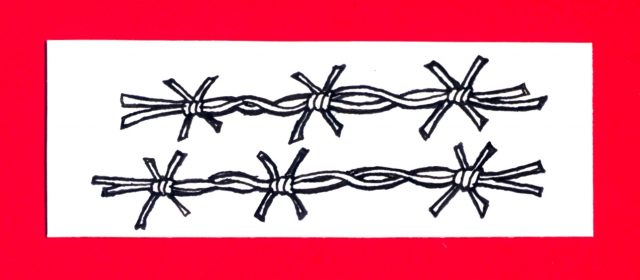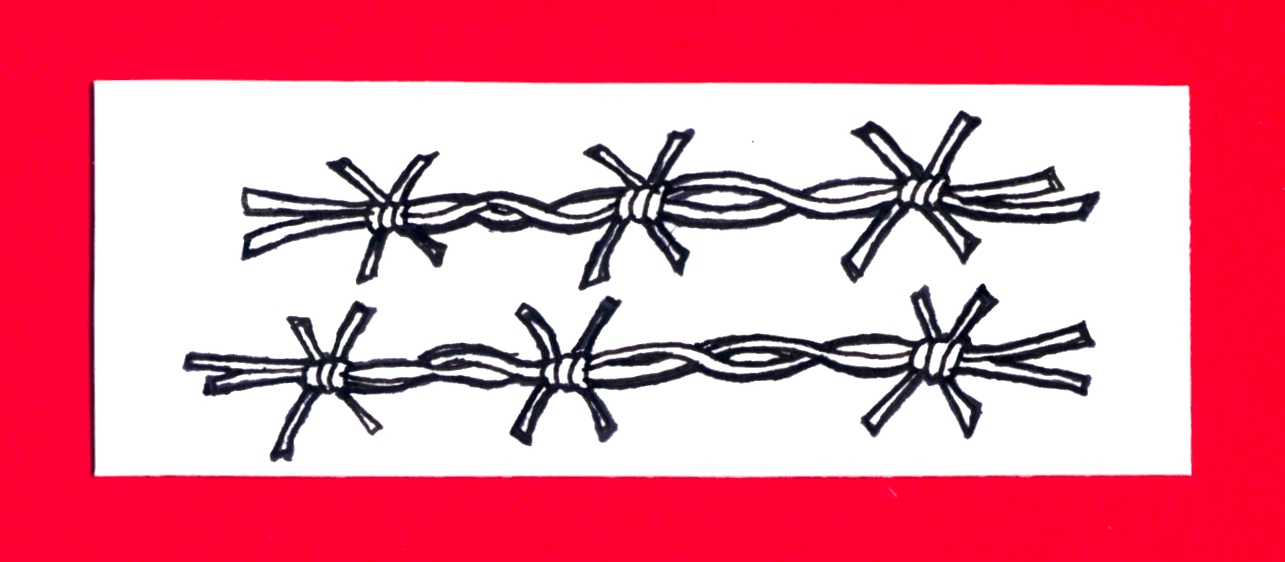
Tom Ashcroft
On Point / WBUR 97/17/17)
With the death of China’s Nobel Prize-winning dissident Liu Xiaobo, we look at human rights under the Trump administration.
China’s only Nobel Peace Prize winner, Liu Xiaobo, died in state custody last week. He was China’s highest-profile political dissident. He died silenced. Then he was cremated and his ashes dropped at sea, leaving no place for admirers to rally. The White House said President Trump was “deeply saddened,” but the same day Trump called Xi Jinping a “great leader” devoted to doing what’s right for China. This hour On Point: Human rights and the USA in the time of Donald Trump.
Guests:
- Chris Buckley, China Correspondent for the New York Times. (@ChuBailiang)
- Sarah Margon, Washington Director at Human Rights Watch. (@sarahmargon)
- Sarah Snyder, Professor in the School of International Service at American University. Author of “Human Rights Activism and the End of the Cold War: A Transnational History of the Helsinki Network.” See professor Snyder’s article below.
- Mike Gonzalez, Senior Fellow at the Koch brothers-backed right wing Heritage Foundation’s Davis Institute for National Security and Foreign Policy. (@Gundisalvus)
Link to Story and 47-Minute Audio
-
The last time a Nobel Peace laureate died in state custody was in 1938, when pacifist Carl von Ossietzky died of tuberculosis under guard in a hospital in Nazi Germany.
“Even as Liu Xiaobo’s illness worsened, the Chinese government continued to isolate him and his family, and denied him freely choosing his medical treatment,” said Sophie Richardson, China director. “The Chinese government’s arrogance, cruelty, and callousness are shocking – but Liu’s struggle for a rights-respecting, democratic China will live on.” … Read the Rest
- The New York Times: Liu Xiaobo’s Fate Reflects Fading Pressure On China Over Human Rights — “Lobbying China over its harsh prison sentences for dissent and its other shackles on citizens’ rights has never been an amicable conversation; progress has long been spotty. But Mr. Liu’s case reflects how Western pressure on China’s human rights problems has decreased, while Chinese leaders have become adept at using economic and diplomatic lures and threats to thwart it.”… Read the Rest NOTE: You can forward a Chinese language version of this story HERE.
(Commoner Call art by Mark L. Taylor, 2017. Open source and free to use with link to www.thecommonercall.org )
*****
Can Congress & Citizens Pressure The White House On Standing Up For Human Rights?
By Sarah Snyder
The Conversation (7/6/17)
In June, the Senate tried to block a US$500 million arms sales to Saudi Arabia.
Saudi intervention in Yemen’s civil war has produced high numbers of civilian casualties, human rights abuses and a humanitarian crisis. The White House’s decision to sell arms to the Saudis is just one indication that the Trump administration may be downgrading U.S. support for human rights. In May, Secretary of State Rex Tillerson suggested that only in some cases should the United States “condition” its policy based on how countries “treat people.”
The congressional effort to stop the Saudi deal was led by Senators Rand Paul, Chris Murphy and Al Franken. The measure garnered the support of 47 senators but ultimately failed – so, the sale will move forward. Nevertheless, it stands as the latest example of congressional activism on human rights, which began in the late 1960s.
As a historian of U.S. foreign relations, I have studied many instances in which members of Congress and nongovernmental activists have pressed the White House on human rights. This history offers important lessons for members of Congress and the public who fear Trump’s administration is downgrading the U.S. commitment to human rights with its “America first foreign policy.”
Earlier congressional battles
Dating to the first years of the Cold War, the United States has provided military assistance to its allies to ensure their ability to resist communist aggression and forge strategic ties between the U.S. and foreign militaries.
In addition, U.S.-based manufacturers profit from such transfers. Indeed, the United States has long been the world’s leading arms dealer.
Until the 1970s, Congress had largely deferred to the president on questions of arms transfers and foreign aid. Like many of their predecessors, Presidents Richard Nixon and Gerald Ford were committed to offering military assistance to allies. These included the governments of Greece, South Korea and Chile, all of which violated their citizens’ human rights.
In 1974, 104 members of Congress wrote to Secretary of State Henry Kissinger:
“…we do not believe that long-term U.S. foreign policy interests are served by maintaining supportive relationships with oppressive governments, especially in the military field, since military power is directly associated with the exercise of governmental control over the civilian population.”
Finding the White House was resistant to this viewpoint, members of Congress tried to end U.S. military support to dictators through legislation. But White House officials maneuvered around Congress’ piecemeal efforts by exploiting loopholes.
In 1976, Congress passed Section 301, or the International Security Assistance and Arms Export Control Act of 1976. It marked a dramatic attempt by Congress to curtail the president’s provision of security assistance to human rights abusers in the forms of military grants, credits and cash. The legislation required the State Department to report on human rights violations by states receiving military assistance. It prevented extending security assistance to countries that engage in “a consistent pattern of gross violations of internationally recognized human rights.”
In the wake of this stricter legislative language, the State Department and Congress worked together to monitor human rights abuses by writing annual reports on countries’ human rights records. Such information enabled them to adjust U.S. foreign policy accordingly.
Members of Congress recognized that by providing support, U.S. military personnel, the U.S. government and the American people could be seen as complicit in human rights abuses. For example, observers analyzing high levels of anti-Americanism in Greece point to U.S. support for the military dictatorship there in the late 1960s and early 1970s.
Human rights concerns today
Members of Congress acted then because they saw U.S. foreign policy as out of line with American values. Today, members of Congress are similarly speaking out on the White House’s and the State Department’s lack of commitment to protecting international human rights.
For example, John McCain’s recent op-ed in The New York Times argued that human rights is an “essential part of our foreign policy, not a departure from it.”
In May, 15 senators signed a bipartisan letter to the president asking him to make human rights a priority in U.S. foreign policy.
And as Senate Minority Whip Dick Durbin recently put it, the United States should not pursue a foreign policy “inconsistent with the values of the United States of America.”
(Republish articles from The Conversation for free, online or in print, under Creative Commons license.)
*****
Support The Good Work Of Human Rights Watch To Protect The Rights Of Minorities & Dissidents Around The Globe. Learn More HERE.


